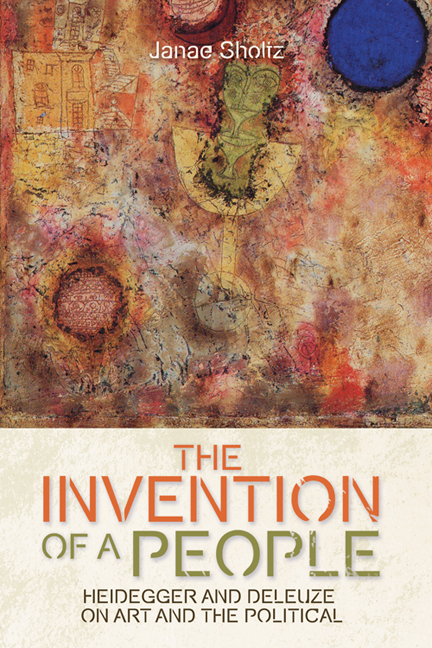Fluxus Plateau: Ontology to Fluxology
from CONCLUDING EVENT
Published online by Cambridge University Press: 05 August 2016
Summary
Fluxus Plateau: From Ontology to Fluxology
It was as if it started in the middle of the situation, rather than at the beginning.
In light of these considerations, we share Deleuze's question, ‘Who are our nomads today, our real Nietzscheans?’, those who are able to wander without return and be true to the cosmic (earth) as a matter of ‘constant flux and the disruption of that flux’. This last plateau continues the theme of imaginative projection, linking to particular figures as conceptual personae. Yet, this plateau seeks to do more, transforming the notion of conceptual personae into an embodied multiplicity, a conceptual collectivity. Indeed, even the desired effect of this plateau is multiple: (1) to find an example in art that actually contributes to the invention of a people, containing the Deleuzian elements that make it resistant, or revolutionary, and (2) to show how art and art practices can be a model for community based on the criteria we have developed for a people-to-come.
The problem is, ‘how does one speak of that which is always to come, which abides in the paradigm of missingness?’ Traditional ways of speaking of concepts, of group identities, of definitions fail us. ‘The minor is thus marked by a certain “impossibility”. Every movement presents a boundary or an impasse to movement rather than a simple possibility or option.’ Deleuze's endeavour to speak of the fluidity of concepts, to capture (in words) the movement of matter, of becoming, is at issue here. What this necessitates is a sketch that can never be filled in completely – a diagram, perhaps? We are not interested, then, in offering a new political programme or ideology, but in constructing a diagram of the features of openness that will allow the kind of movement and becoming that must be indicative of any future peoples, especially if they are not going to fall foul of the kind of processes of totalisation and stagnation that lead to the worst types of exclusion, and even eliminatory practices.
In order to do this, we examine the rise of the 1960s avant-garde art collective Fluxus, whose purpose and origin uncannily cohere with many of the elements of Deleuze's thought.
- Type
- Chapter
- Information
- The Invention of a PeopleHeidegger and Deleuze on Art and the Political, pp. 265 - 282Publisher: Edinburgh University PressPrint publication year: 2015



